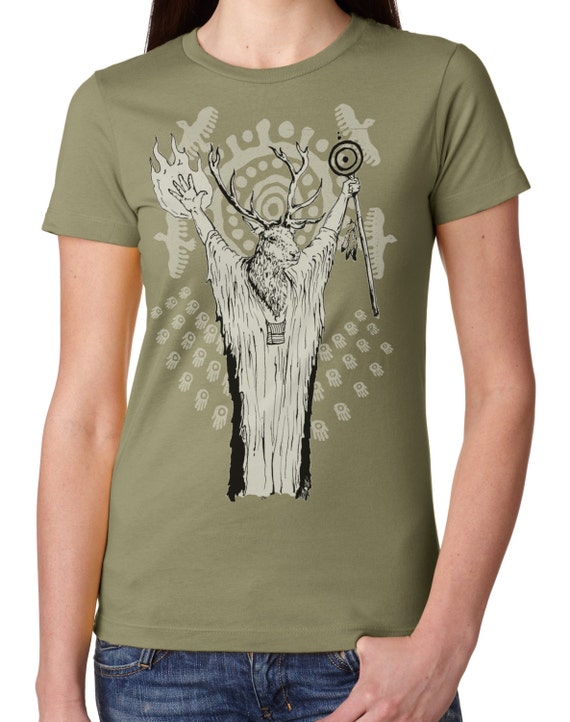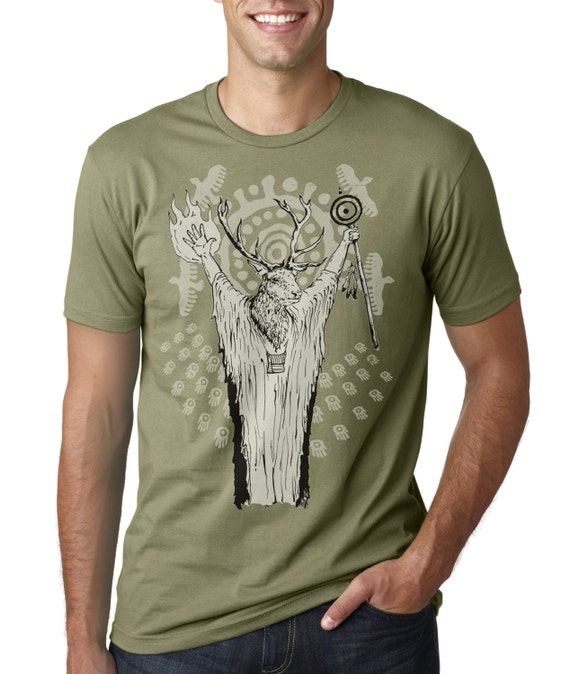 |
| "Gaia" by Alex Grey |
Intro
Since the earliest times of human consciousness, people have been exploring the spirit world, the inner world, and the physical world through visionary practices. Often, this has been done by intaking specific chemicals derived from plants. The pathways opened by the intake of these substances provide a number of effects which can include expansion of perception, self awareness, mental and physical healing, and occasionally cause people to lose their minds. The following is meant to explore the nature of the reaction when people intake plant medicines and what to the pathways to the other side.
Species consciousness
To better understand the nature of a visionary experiences, it is helpful to first understand that all species have a shared consciousness. People have long referred to the connection between humans and the collective unconscious. This is something that all species share. There are many overlaps within the network, as the same energy makes up everything. Think of this like an old dial tune radio. Each species is tuned in to a unique channel but the frequencies cross over one another often as there are margins of overlap, like when you turn the dial on an old radio and can hear more than one broadcast simultaneously. It is unknown to what extent different species are aware of their common signal, but we can make the general judgement based on our current evolutionary state, that humans are fairly unaware of their common frequency at all.
There are many scientifically unexplained animal behaviors in animals that provide evidence of their conscious network connection. Monarch butterflies, for example, follow a migration route from Canada to Mexico. This journey takes much longer than the life span of an individual butterfly but they reproduce and their young will continue the journey which their parents had begun. If we look at this behavior from the point of view that this “instinct” is driven by the collective knowledge of the species of Monarchs, it seems to reinforce the idea that they share a thought network.
 |
| Ayahuasca |
Supposedly, we do not understand the so-called psychic phenomenon experienced by the butterflies or any other migratory animal who follow the knowledge of their ancestors. Biologists simply shrug off many animal behaviors as “instinct” without ever explaining what “instinct” actually means. The reason is that they don’t know what causes instinct and wish to make the claim that there is some physical mapping in the brain from an evolutionary mutation. This is because science stubbornly refuses to delve into the fact that there is more to the universe than the easily observable physical aspects. This is a limited outlook and dismisses the true understanding of the universe, which our ancient ancestors understood quite well. The fact is that there is a greater aspect to the universe that resides in an energy system and we would commonly refer to it as the spirit world.
How plant spirits communicate
 |
| Psilocybin Mushrooms |
By now you may be asking yourself, what does this have to do with plants? Plants, lacking the physical data storage unit of a brain, have a different way of holding the knowledge of their ancestry and self awareness. There is much evidence of plant consciousness that has been studied through their slow movements of their behaviors. For a general understanding of the study of plant behaviors, I recommend viewing the documentary “What Plants Talk About” (https://www.youtube.com/watch?v=lLmM1N754vU). There is solid proof that plants have developed ways to communicate with each other so they can make appropriate behavioral decisions which will best benefit their network. The best way to observe this communication is through the plants very own chemical makeup.
Here is where it gets really interesting. Some plants have developed special chemicals that allow them to communicate with not only each other, but also animals. It is only when we intake these chemicals ourselves. that we are able to begin to understand what the plant networks are really all about. These plant chemicals are popularly referred to as “psychoactive substances.” The intake of these chemicals change our brain frequency to resonate with the plant’s frequency. The result is that we connect to that plant and begin to perceive ourselves as the plant does, we have now tuned into their network.
How people connect to plants/energies
The result of intaking psychoactive substances varies from plant to plant. For example, when someone consumes the THC created by a cannabis plant, they begin to alter their perceptions to be more like those of that plant. The plant’s consciousness is shared by the user and creates an altered state in which the person feels more like what it is like to be a cannabis plant. The variety of plant shows its personality through the effect it has on the consumer. This is why different strains of marihuana make people feel differently.
 |
| MAPS Magazine 2001 |
The same sort of effect happens when a person ingests psylocybe mushrooms. The psilocybin changes the brain waves of a person so that they connect on what could be best described as a “psychic” network in which the mushroom organism as a whole communicates with itself. This is why people will experience a loss of self or ego during a mushroom trip, resulting in a change of perception. Within the experience, the user can communicate with their host; a conscious collective of the mushroom organism that has a vast network throughout the universe.
All plant based experiences have a host which is the collective of all plants of that type. The psychoactive chemicals have evolved in the plants as a way for the organism of the plant type as a whole to remain cohesive. Ayahuasca users report encounters with spirits in the form of many jungle animals. This is one way that the plant essence shows itself to the user and communicates. The more powerful the chemical, the more a person has a loss of self and enters the world of the plant host. Since ayahuasca is a DMT experience, the experience is so powerful that the person will entirely retune from their normal human frequency and perceive the world as the plants do.
Synthesized chemicals
When a chemical normally created by a plant is then synthesized in a lab (which is still mostly derived from plants), the plant spirit is diminished greatly and the chemical itself is left to create an experience based on the frequency of the substance. Most of the time, the result is more harmful to the user than good. The only chemical synthesized in a lab that do not seem to have an extremely negative effect on the user are DMT, LSD, and MDMA. Others made through heavy processing, such as cocaine, amphetamines, heroin, and pharmaceuticals created for western medicine, have a huge range of addictive and toxic results. For evidence of this, simply look at the drugs that produce huge social, personal, and physiological problems with the users. Where the psychedelic chemicals can have problematic results for cultural power structure, and occasionally a person’s ability to cope with what they learn through their experience, none of them have shown any evidence of physical addiction or dangerous overdose potential.
Effects, benefits, and warnings
Each plant spirit is, in a sense, a teacher. By taking us outside of our own limited perspective, we can learn things we did not previously know. This is how the shamans use plants for divination to find prey, lost objects, or to see into the future. In the Sioux legend of how Peyote was discovered, a woman was shown where to find food and medicine by the spirit guide of the Peyote cactus. By venturing out of our own consciousness and into the of the plant “mind” we can also look at ourselves objectively which is sometimes quite difficult for people. When we are constantly reacting to hang ups that we are creating through our habits, such as thought of fear, the plants can show us those problems. Facing our fears often causes what people refer to as a “bad trip.” While these experiences can seem traumatic, when viewed properly, they reveal to us something we need to work on to make ourselves better.
 |
| "DMT" by Alex Grey |
Another important fact to note is that the plant spirits, like people, can be of different nature. Some are light while others are dark. It seems that the direction of a trip on DMT, for example, is close to the polar opposite in direction to that of salvia divinorum. While DMT is like an elevator ride upwards into a place of light, salvia takes you down like being flushed into and swallowed by the earth. While there is something to be learned from either experience, the salvia one can be much tougher to handle. Datura is one plant teacher that I would be very cautious of as some people are lead by the spirit of the plant down a very dark path and a few don’t return.
Conclusion
It is my belief that all organisms have an underlying connection which constitutes a collective “whole.” Each human, for example, is an individual part of a larger human animal that is its own conscious entity. This is why ideas simultaneously become popular all over the world and why people can sense things about each other. Some of the plants have evolved ways in which they can break down their barrier of individuality and connect as a whole. When they share this state with people, the result is a greater sense of connectedness and loss of ego. While we all live our lives as individuals, the plants can teach us to function as a whole in which we better understand the symbiosis of the natural design and how we can function through mutual growth rather than by selfishly using resources without regard to consequence.
With all experiences, I recommend taking it very seriously as many of our ancestors have. By entering the world of the plant spirits, you venture into a sacred realm that can provide life changing benefits. It’s a good idea to study the traditional use of plant medicines as well as to read up on people’s experiences on sites like the DMT Nexus and Erowid. With the right perspective and preparation, you can benefit from the psychedelic experience and gain an understanding of the lessons learned from them.
By Scott Allison
















































